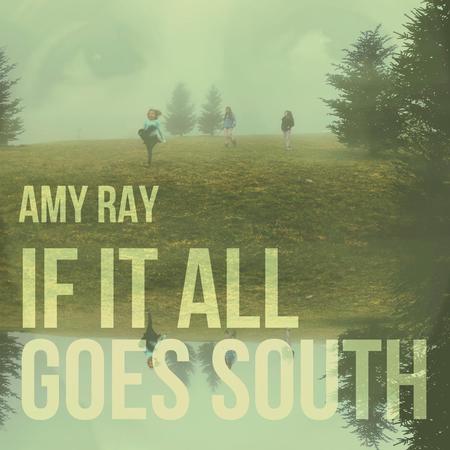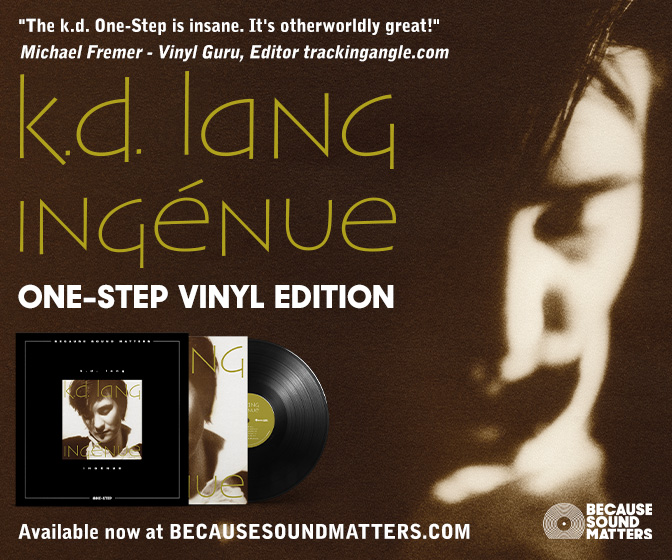Amy Ray's Love Song to The South (and more) Is Filled With Wisdom, Pain, Death, and Hope
"they won't have me but I love this place"
I know more about Klaus Barbie the war criminal than I do about Barbie the doll—or Barbie the movie—but having spent a few months pondering the meaning of the songs on Amy Ray's recent, politically tinged, geographically existential, lushly arranged solo album I was fascinated to find that Greta Gerwig's new "Barbie" movie uses in a crucial scene The Indigo Girls' classic "Closer to Fine" from their eponymous 1989 debut album. The song deals with uncertainty and ambiguity.
Barbie the doll, I read, drives off to the real world in her pink Corvette, hoping to find the meaning of life (and death) singing the oft repeated line from that song, "There's more than one answer to these questions, Pointing me in a crooked line".
The same could be said about the meaning of some but certainly not all of the songs on this richly rewarding album, recorded mostly to tape (and mixed and mastered on the record from tape) at Nashville's Sound Emporium by Tedeschi Trucks band engineer Bobby Tis and produced by the group's "front of the house" engineer and production manager Brian Speiser (the audience hears his mix), who I must divulge here is a friend of mine and who, after reading parts of this review may even remain one.
Ray wrote most of the material during the Covid lockdown and its effects can be felt throughout. The opener "Joy Train" reflects the profound sadness of that time, and of many other equally traumatic times and the need to not "...get caught squandering the good times". She references the deaths of Medgar Evers and Martin Luther King in lusty, joyous choruses seemingly at odds with the lyrics, but not really. The arrangement for guitars, Dobro, organs, fiddle, electric bass, drums, banjo and multiple back up singers shouts "the South" the way Spanish moss on trees does. When it's over, you know you've been someplace grand, even if it opens with being stuck driving behind a chicken truck "as the feathers blow on past."
That's followed by "Chuck Wills Widow," a resigned to sadness song with an uplifting lilt that uses a large species of southern bird, the oddly named Chuck Wills Widow, as a metaphor, and an opening line explanation for what's coming: "Even a sad song is better than no song at all". The song, which concludes with a suggestion filled with hope is richly arranged with the folk trio I'm With Her adding vocal repeats, mandolin, guitar and fiddle to the other musicians providing bass, accordion, congas, dobro and an additional mandolin. The album title is a lift from a verse here: "Lose your will, lose your destination, Voices in your head, keeping you guessing, If it all goes South, count it as a blessing that's where you are, Yeah that's where, where you are". The phrase has a double meaning.
"They Won't Have Me", is a heartbreaker with Ray expressing sympathy for the broken rural life and "family farms gone to chaff", while acknowledging that while she "loves the place" (a rural diner serving as a metaphor for the South) she's not welcome among the people there. "You know what divides us is just a difference someone made."
"From This Room" is a "You'll Never Walk Alone" kind of song. Ray sings "Anyone can sing this song, it's been written a million times". I'm glad she contributed her version of the sentiment. It's one of the album's highlights, at least for me it is.
"Tear it Down" is a stunner about racism, clearly written in the aftermath of the George Floyd protests and ensuing violence. Ray begins with "You say, I miss the old ways, but not like that dog-whistling fool of a king". Then she implores "Tear it down, tear it down, That ragged cross of race." A powerful side closer .
Side two's subjects are a disavowal of religious dogma, an homage to the late WFUV (Fordham University) DJ/PD Rita Houston who passed away at the end of 2020 from Ovarian cancer at age 59 filled with New York references, a song about the ecology (how many years after Marvin Gaye started in on it?), and one about a grape eating dog's acceptance of what is, and the singer's inability to do likewise.
Now, please do not feed your dog grapes! Grapes are extremely toxic to dogs!
The side ends with a musing about death—something that the pandemic era forced upon everyone. Speaking of "everyone", the cast of musicians is long so you'll have to get a copy to read who's playing, though I'll single out drummer/percussionist Jim Brock, whose name will be familiar to fans of Janis Ian's Breaking Silence album, though he also plays on other records of both Ian and Ray (glad Amy's last name isn't Sylvia. Glad Ian's last name isn't Bob).
Seven of the ten songs were recorded at Sound Emporium. Three were of the modern "phono it in from wherever you are at 96/24" variety (Brandi Carlile makes a guest appearance that way) and then transferred to two inch tape for mixing to 1/2" 30 IPS analog, from which Kevin Gray cut lacquers. Can you tell which are which? Doubtful.
These are busy arrangements with some songs listing more than a half dozen performers. The mixes are skillful and reasonably well-organized though of the "takes you into the studio" variety rather than the kind that brings the musicians to you, starkly revealed. It mostly works, in great part because the atmospherics created are rich and enveloping, though a few border on "too warm to the touch" and the overall timbral balance is on the frustratingly murky, overly warm side as Mr. Speiser likes it—and I'm not writing that because I have "old ears". The cymbals have just about zero sizzle, guitars lack string transients, and there's an overall softness to everything that in some ways is kind of a parody of "warm analog sound", but it's purposeful. Ray's voice, however, is richly and effectively presented both timbrally and spatially— unlike some of the instruments, she's not buried in the mix.
For most of these songs though, the richness works to produce a whole album vibe that's relaxed and free of studio artifice. It took a while for these songs to fully register and for the production to gel in my mind, but once they did, they've stayed with me, in great part because Ray's singing is so affecting and so many of the lyrics and melodies are so powerful.












































